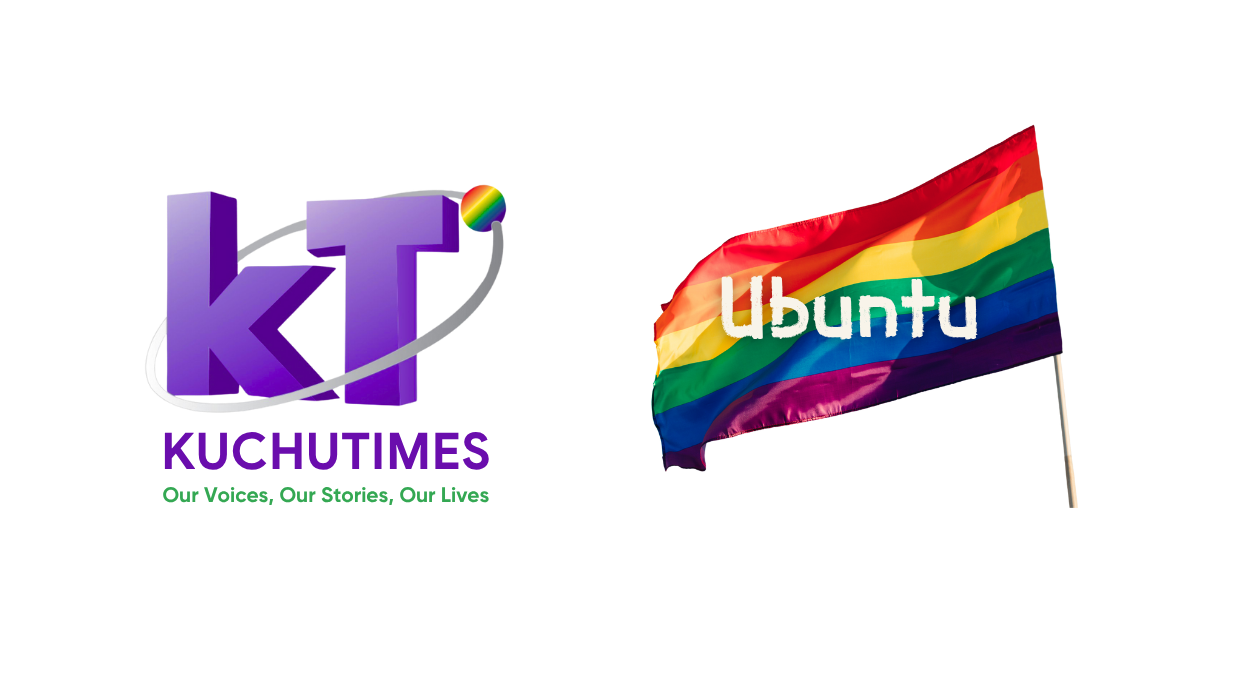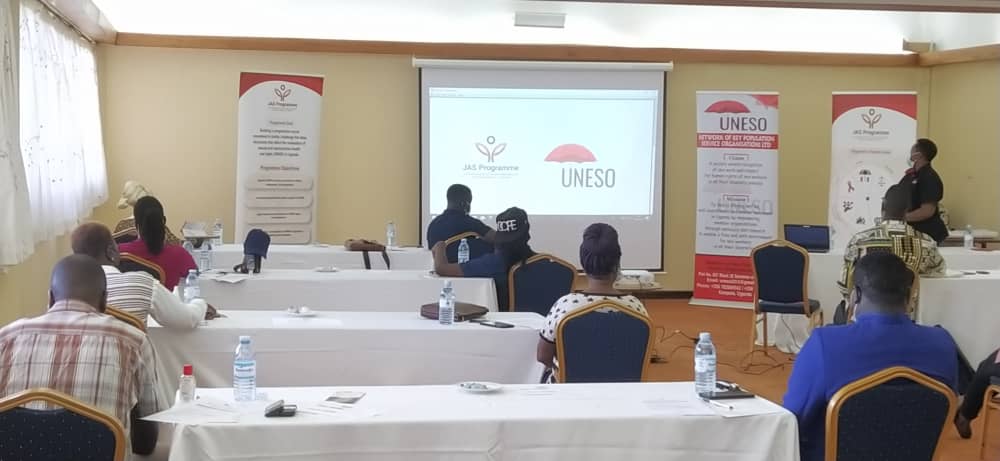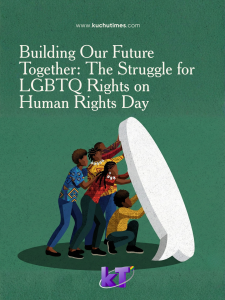Uganda Network of Sex Worker led Organizations (UNESO) recently hosted partners, allies and representatives from membership organizations to a dissemination meeting and official launch of their documentary titled “Sexual Reproductive Health and Rights (SRHR) Experiences Of Sex Workers” in Kampala. With support from Joint Advocacy for Sexual and Reproductive Health and Rights (JAS) Programme, the documentary that was created last year highlights the day to day lived realities, gaps and practical recommendations to SRHR issues faced by sex workers in different parts of the country.
Despite the detriments caused by the partial lockdown due to the second wave of COVID19, the National Coordinator of UNESO, Daisy Nakato Namakula expressed her excitement in welcome remarks to the guests for their promptness and overwhelming support. Daisy compelled KP led organizations and stakeholders to put in place strategies that will ensure their responsiveness to the needs of marginalized communities during this time of crisis especially in hard to reach areas such as the villages, islands and landing sites in which they operate. She further suggested that COVID-19 prevention strategies should be integrated within service delivery to guarantee vibrant KP communities post COVID-19.
The JAS Programme is a 4 years’ intiative that began 2020 led by CEHURD. Implemented by a consortium of 7 organizations and with operations in 14 districts at the present, the collective aims at building a progressive social movement that boldly challenges the deep structures which affect the realization of sexual and reproductive health and rights (SRHR) in Uganda. UNESO, through capacity building, engagement and sensitization activities under this initiative has been key and played a definitive role in strategizing and promotion of improved SRHR services for sex workers. Among these strategies is the documentary “Sexual Reproductive Health and Rights (SRHR) Experiences of Sex Workers” which will also act as an evidence based tool to inform the future programming in response to SRHR services for sex Workers in all their various diversities.
CEHURD representative and guest of honor, Paul Wasswa pledged unwavering commitment to UNESO through sharing resources and expertise to make certain that the network fulfills its mandate under the consortium. Wasswa also noted that in addition to the limitations stressed in the documentary, the selective application of the set government restrictions to tackle the COVID-19 scourge in the country will greatly affect KP communities who are especially targeted by society and the police in reference to the #ReleaseThe44 case in which 44 LGBTQ persons were charged with “negligent act likely to spread infection of disease” under Section 171 of the Penal Code Act.
In a speech, Ministry of Health representative- Dr Shaban congratulated UNESO on this amazing achievement as well as applauded the quality and well thought-out content of the documentary. Dr Shaban went on to caution the gathering on the severity of the current wave COVID19 and urged attendees to get their COVAX vaccination from designated health facilities as they strictly observe SOPs.
A panel discussion moderated by UKPC National Coordinator, Richard Lusimbo engaged both panelists and the audience shared reflections on the documentary and recommendations which will enable sex workers and other KPs easy access to SRHR services ahead of the second COVID-19 lockdown. Recommendations include but are not limited to; availability of HIV self-testing kits, early and long term refill of ART, PrEP and PEP medications, emergency toll lines, risk and crisis management plans for organizations together with equipping community members with economic empowerment skills to help them have side businesses which will help their survival.
The documentary was launched by chief guest; Mr Paul Wasswa (CEHURD Representative),Shamillah Batte (UNESO’s Board Chair), Dr Shaban (Ministry Of Health Representative) and Mr Richard Lusimbo (National Coordinator, UKPC).




